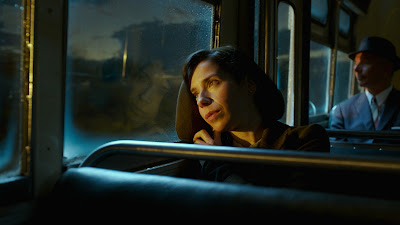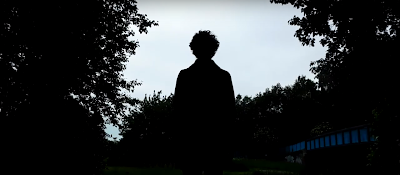The Rider
The Rider - A Search for Identity
The Western is a traditionally heavily male genre of cinema. It's probably the genre that has more masculine appeal to it and that most explores themes related to masculinity. With that in mind, why would a woman want to direct a Western? Maybe precisely because of this is The Rider such an innovative film and a game-changer. Chloé Zhao brings a breath of fresh and poetic air to this masculine genre and raises an important question that is so important and present in our modern society through the story of a young cowboy: what is the male identity today? What does that even mean? All throughout history, masculinity has been associated with strength and power. But that leaves no space to explore other more fragile aspects present in every man. In a time when identity is something so debated in our society, it's only necessary to question the male identity so that we can come to terms with more fragile elements in it. And through the sensible, understanding and masterful hands of Zhao, we may be led to a hopeful answer to this dilemma.
In The Rider, we follow a young cowboy named Brady Blackburn - played by real-life former rodeo star Brady Jandreau, in one of the best and most nuanced performances of the year, which is incredibly impressive for someone who is not an actor (maybe there's a possible future in there?) - who lives in South Dakota, after he has suffered a nearly fatal head injury during a rodeo show. Because of this, he is unable to participate in any more rodeos and he must go through a search for a new identity since he can longer do what is so deeply a part of his self and, therefore, must reformulate what it means to be a man in the heartland of America. This is a deeply moving and poetic story about a rediscovery of identity that makes this one of the most important and refreshing films of the year. What makes it so effective is that it has a documentary-esque nature to it, with each scene possessing such raw and real emotion. In fact, it's almost entirely based on the life of its leading actor, giving the story that heightened sense of reality, almost ripping our hearts out of our chests with how powerful its emotions are.
Just the emotion and vulnerability so very present in this film and its leading man challenges the prejudices associated with its subject matter. A film about cowboys is one of the most emotional experiences of the year. Brady shows such vulnerability that we aren't used to seeing in a cowboy, who we expect to be tough and virile. And that is precisely the reason why this film is so important. This film challenges every "man up" ever said in history and shows that "manning up" doesn't mean what people think it means. It means not to be tough and emotionless, but to accept that men are also vulnerable beings. It means changing the traditional image of what is male.
This film reflects the modern crisis in male identity. Brady is constantly challenged by his father and his male friends because of his inability to ride in rodeos or do the things he used to be able to do. There is a sense of castration in it - he cannot be a man anymore because he cannot ride anymore. This portrays the emotional crisis faced by many men nowadays who feel that they aren't living up to the title of "man" anymore. This is because the traditional idea of what it is to be a man is insufficient now. Society is changing, and it's becoming less male-dominated, which threatens the traditional concept of masculinity. Brady becomes distant from the men who are still able to embody this old ideal and becomes almost merely a shadow of his former self - an aberration with a scar where his virility used to be. And so, he must go through a journey to figure out what is changing in him and come to terms with that.
And he's not alone. There is a feminine presence that is understanding and compassionate of him - his sister Lilly, one of the most lovable characters I have ever seen, played by Brady Jandreau's real-life sister, Lilly Jandreau. She is his anchor in a world that doesn't understand him. She's someone to care about and protect. She's flawed like him - she has Asperger's syndrome - and she doesn't see him as less of a man because of his injury. "I'll take care of you, Lilly", he says to her. "I'll take care of you too!", she replies. This is one of the most heart-warming moments of the film. It shows that we are never truly alone in our identity crisis. In my opinion, Lilly represents the role of women in helping their despairing brothers. This search for a new male identity is not to be done alone.
All throughout the film, Brady has moments where he lashes out. He has his masculinity under threat and he constantly tries to reassert it and loses control. Be it when he goes too far in his attempt to go back to horse riding or during a friendly wrestling match, he ends up either hurting himself or hurting others in his attempt to "man up". He tries to respond to situations in what it would be expected in a traditional "man up" way, which nearly destroys him. This is because he must find a new way to "man up".
It's impossible not to talk about what is arguably the most important character of the entire film - Lane Scott, who plays himself, Brady's best friend (both in the movie and in real life). Lane is the example for Brady of what could happen to him if he goes too far. A former rodeo champion fallen from grace after suffering serious brain injury which completely incapacitated him for life, dooming him to never be able to move properly again, destroying any ambitions and dreams he might have had. He is the manifestation of what can happen, a constant warning. Brady's visits to Lane Scott's hospital are some of the most emotionally powerful in the entire film. It's impossible not to have tears welling in your eyes watching him trying to emulate that feeling of riding a horse and feeling the wind in his hair. It's so heart-achingly painful. But also, at the same time, empowering. Despite his condition, Lane Scott still has fire and determination inside him. He is still a fighter. And that is extremely empowering - not only to us, but also to Brady. "Don't give up on your dreams", he tells Brady... and us.
And here lies the hopeful message of this film. There is hope for the modern man. The injury isn't a castration. Just like when a new forest is born after a wildfire, new man is born after his injury. Unlike the horses that, when injured, must be put down because they no longer can do what they were meant to do, which is run through the fields, Brady is a person, and, even though he can't do what he was meant to do anymore, which was to ride, he has the ability to overcome that and be reborn. And as we see Brady riding on a horse, galloping through the golden, dreamy expanses of South Dakota that irradiate a hopeful warmth, riding towards a future of uncertainty, we are overwhelmed by a feeling of freedom as we witness the birth of a new man - a man who has overcome a tragic accident and has finally been able to find a new identity.
This film is a mirror of a universal search present in our modern society for identity and is able to enlighten us. Because of this, I consider The Rider a feminist film, even though it's about masculinity, or despite that. This is because I believe feminism is the ideology that fights for the equality of rights of all genders and therefore doesn't only concern itself with issues related to women and femininity. Feminism has been able to accomplish many changes in our society, which includes helping women connect with their male side. Now it's time it helps men connect with their female side. Because women are as strong as men, men are as frail as women. And Chloé Zhao perfectly translates this to the seventh art, creating one of the most important and beautiful masterpieces of the year.
The Rider is a modern Western and finds a modern definition of its subject matter. It represents a shift in our society's ideal of masculinity. Chloé Zhao, through her female experience, is able to lead her protagonist through a journey of self-discovery, revolutionizing the depiction and questioning of masculinity in cinema. This is why we need more women working behind the camera. From intimate and dark blues and reds to expansive and hopeful golds and whites, The Rider is also one of the most stunning cinematographic experiences of the year. It truly is one of the most refreshing films of the decade, representing the beginning of a whole new age. And, man, were we in dire need of something like it!




Comments
Post a Comment